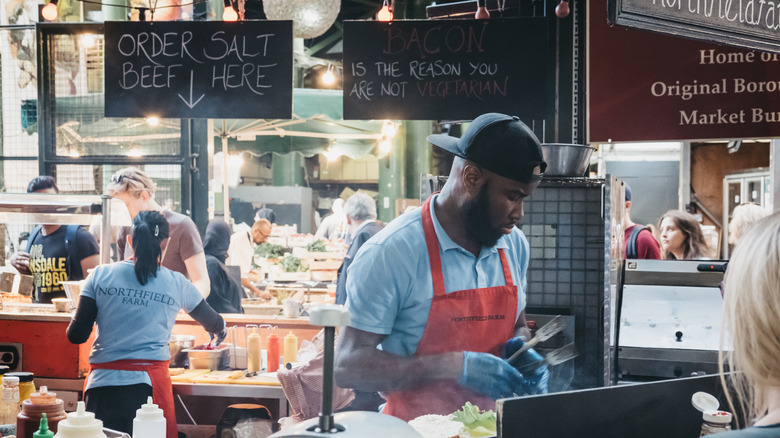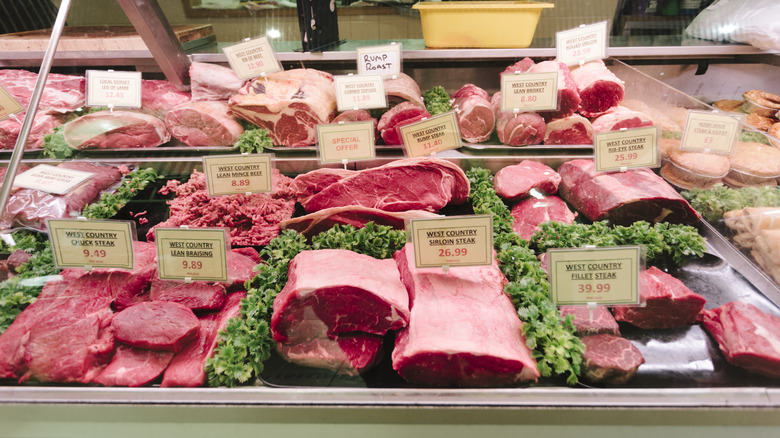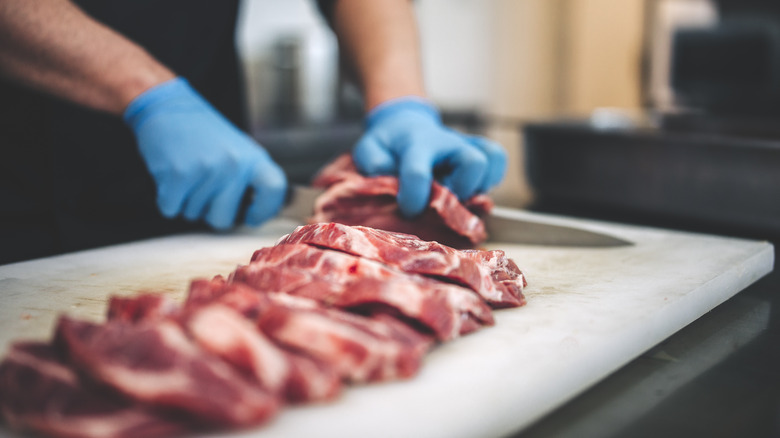Why You Should Really Consider Buying Meat From Your Local Butcher
You've heard the mantra "eat local." Whether it's supporting local restaurants or small food businesses, shopping close to home can be beneficial for a number of reasons, from environmental to financial. That especially applies to vendors such as butchers, where care and quality are highly important to the product. Low-cost supermarket meat from large industrial farms may be convenient and cheap, but there are plenty of drawbacks as well.
It's not impossible to get high quality, ethical, and even local meat at your closest large grocery chain. The best grocery store meat departments can offer good selections, especially specialty stores such as Wegmans and Whole Foods. But shopping for meat at a local butcher gives you far more control over quality and a deeper insight into how the animals were raised, the butchering process, and more. It might be a bit more expensive to shop locally, but if you can afford it, the benefits far outweigh the costs.
The butcher knows best
So what makes a local butcher's offerings so much better than your average supermarket meats? With a local butcher, you've got a one-on-one relationship with someone who has hand-selected the meats they stock at their business, often directly from farmers. They can usually answer plenty of questions about where and how the animals were raised, who the farmers are, and more. Sometimes butchers even raise the animals themselves, cutting out an additional step in the funnel from farm to consumer.
Since supermarkets buy their meat in bulk for distribution, there's usually no way for them to know the details of their meat down to the individual cow or pig. You likely won't be able to ask your local supermarket's butcher counter worker where that steak came from, or what diet that pig ate. Conversely, local butchers often have quality standards that they adhere to and that you can ask them about directly as you shop.
Local farms, local freshness
Another benefit of shopping local for your meats is that it's all but guaranteed to be fresher than the grocery store's offerings. With less ground to cover between the farm and the butcher counter, it's less likely that the meat has been sealed away in cold storage for a long period of time. Grocery store and supermarket meat may be shipped in from farms miles away and is often frozen to ensure freshness prior to stocking on shelves; this isn't always the case, but it can be. If you want a better guarantee that your meat has never been in a freezer, shopping at a local butcher is the best way to go.
Cost, of course, can be a limiting factor when it comes to shopping locally. Care equals money when it comes to animal husbandry, and the cost per animal for these farmers can be much higher, which amounts to a higher cost for the consumer as well. But paying a little extra for a huge jump in quality, if feasible for your budget, can be a great deal in and of itself.


